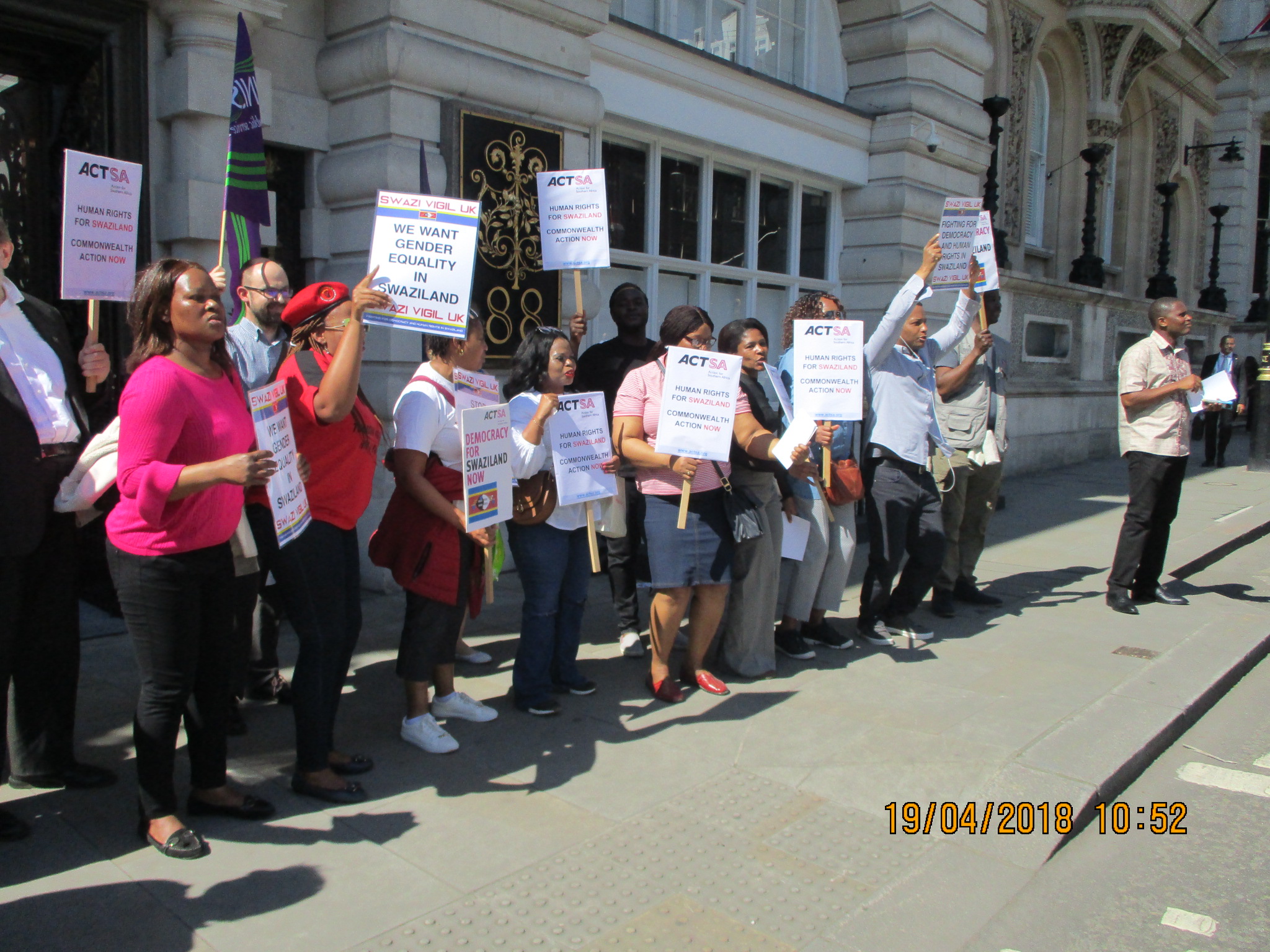The vigil is gaining momentame every Surtuday as the weather is on our side, passerby are continueing to sign our petitions without fail. A report in the Times of Swaziland (Sunday, 8th May 2010) entitled ‘Swazi Protest in UK gains Momentum’ speaks of several protests outside the Swazi High Commission in London and outlines the petitions we are running. The article quotes Vigil co-ordinator Thobile Gwebu as saying that there is good support from the public who read and sign the petitions. She speaks of supporters’ anger at the quashing of a political activists’ event in Manzini and also says supporters are encouraged by the launch of the Swaziland Democracy Campaign in Johannesburg. She ends by saying that Swazis have suffered enough and it was high time there was political freedom, democracy and respect for human rights in Swaziland. ‘Let us run with endurance in the race that is set before us’.
In a separate article ‘…they should come back home – govt’ the Times quote Clifford Mamba, Principal Secretary of the Swaziland Ministry of Foreign Affairs and International Co-operation, saying the protesters should come back home where their issues would be raised. He said his government had an open door policy on such issues. He said the Vigil’s picketing and petitions were ineffective because the place to address these issues was in their own country.
Well our response to Mr Mamba is, if these issues are being addressed:
· Why is there still a state of emergency after 35 years?
· Why are political parties banned, activists imprisoned, and the judiciary, media and other bodies controlled by the monarch?
· Why are women suffering gross violation of their human rights?
· Why do seventy per cent of the population live on less than $1 a day?
· Why are more than 1 in 4 Swazis living with HIV / AIDS?
More bad news from home that demostrate the violetion of human rigts is without fail . Swaziland’s illegally-appointed Prime Minister Barnabas Dlamini has made it clear that he is in charge of the kingdom’s police force and will use it against democracy activists.
Dlamini, who has an international reputation as an enemy of freedom and democracy, was explaining why dozens of police invaded the funeral of democracy activist Sipho Jele two weeks ago. Officers tore up pictures of the deceased man and confiscated banners belonging to opposition group, the People’s United Democratic Movement (PUDEMO).
He said police would break up gatherings and make arrests even if no crime had been committed. The police just needed to believe that a crime might be committed.
Dlamini’s remarks at a gathering of the kingdom’s senior media people fly in the face of comments by Swaziland Commissioner of Police Isaac Magagula that the police were a service to the people of Swaziland and would treat people as ‘clients’ and with respect.
Dlamini told the meeting that police suspected crimes would be committed at Jele’s funeral so they broke it up.
‘At Jele’s funeral, the police would not just sit back and wait for something to happen first before responding to the situation. But they had to do something about the information brought by the Intelligence Branch,’ the Swazi Observer, the newspaper in effect owned by King Mswati III, sub-Saharan Africa’s last absolute monarch, reports him saying.
Dlamini said that at future funerals or other occasions if the Intelligence Branch happened to detect a security threat, police then they would attend to ‘ensure law and order’.


 Protest photos on Flickr - Click
Protest photos on Flickr - Click